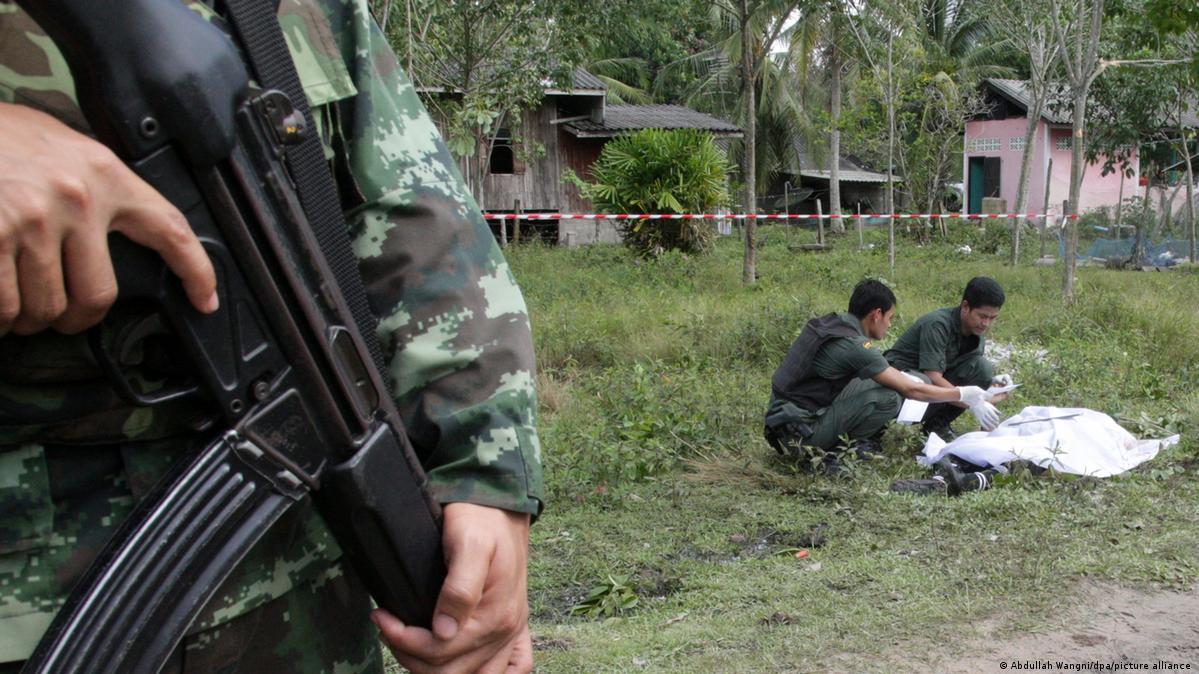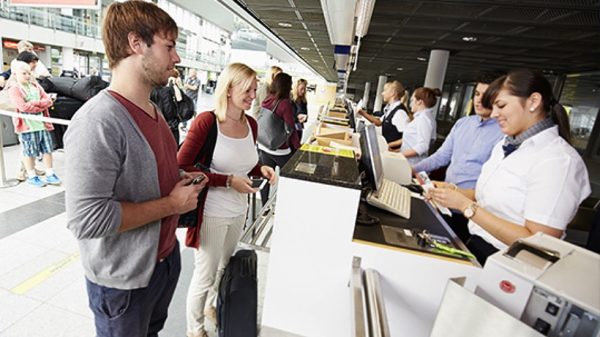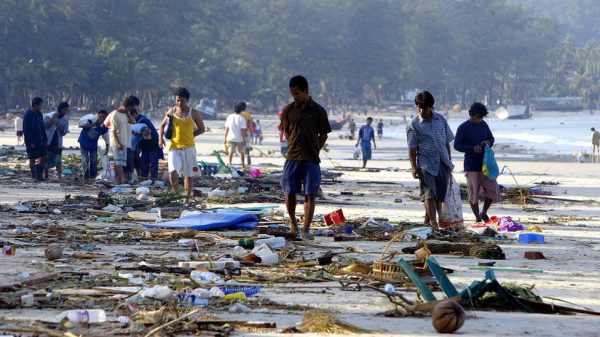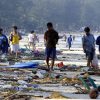Sad to report, more fatal violence in southern Thailand.
On Tuesday morning, government forces in Yala, a province in the restive Deep South of Thailand, shot and killed a suspected insurgent wanted by Thai police for alleged involvement in several violent incidents. The suspect was identified as Ibrahim Salae, a 42 year old man who, police say, had a reputation for being a “specialised bomb-maker”.
He was suspected of being involved in several bomb attacks on petrol stations and, lately, the torching of construction equipment of the Yala Highway Company, as well as the bomb attack on a police unit investigating the arson last Friday, which resulted in the death of a police major and injuries to four other policemen.
Acting on a tipoff that Salae was hiding in a house in Village 1 in Ban Rae sub-district, a combined force of troops, paramilitary rangers, and police was dispatched to lay siege to the house at about 4.30 am. Instead of charging into the house, the force adhered to the rules of engagement by attempting to persuade Salae to surrender.
Community and religious leaders were also asked to help in persuading the man to surrender.
At about 5.45 am, Salae opened fire with his handgun as he tried to break the police cordon, but was shot dead at the scene.
A 9mm pistol was found by his side. Lt-Gen Santi Sakuntanark, commander of the Fourth Army Region in charge of security affairs in the southern region, expressed his condolences to Salae’s family and told villagers, mostly Malay Muslims, to have confidence that government forces exercise caution and would step-by-step apply intensifying measures to deal with suspected insurgents in accordance with the rules of engagement. He explained that authorities had to use force against Salae because the suspect did not surrender and started firing first.
The 2-decade long insurgency in southern Thailand, known as the Restive South, has witnessed nearly 7,000 killed in insurgent and terrorist activities in the Thai provinces along the Malaysian border.
Thailand’s southern violence is largely rooted in ethnic conflict, but militant groups have also used inflammatory jihadist language in anonymous leaflets. Young militants have been trained and indoctrinated by Islamic teachers, including some in Islamic educational institutions.
Some observers view the violence in southern Thailand as an expression of Islamist militancy and separatism, reflecting the strong religious beliefs and resistance to the predominantly Buddhist Thai state among Malay Muslims.
Recently, the rise of the Islamist movement, particularly the Salafi movement, has brought the religious factor to the forefront of discussions. The Salafis seek to liberate the Muslim-dominated Malay regions from Thailand.
Many of the attacks involve small bombs, set off with timers, killing targeted suspects along main roads.









